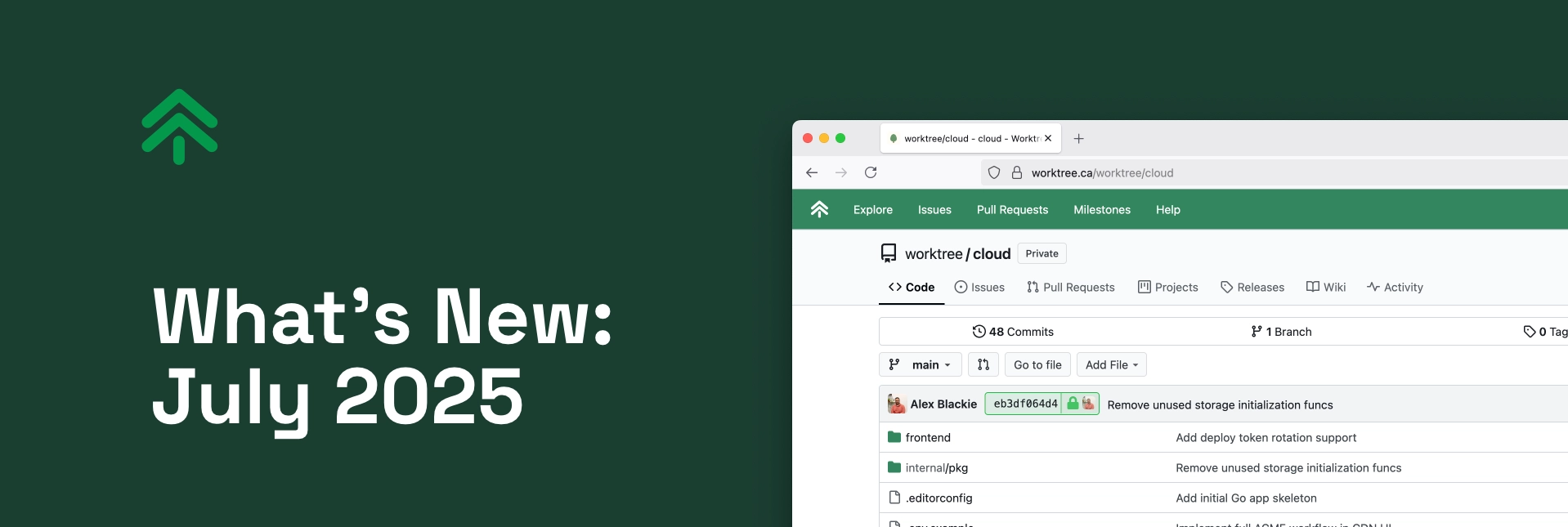What's new in Worktree: July 2025

A lot has happened since Worktree publicly launched earlier this year.
- 💪 Worktree.ca now hosts well over 200 repositories.
- 👋 Over 100 new users joined in May-June.
- 📈 We’re serving on average 2 million HTTP requests per month.
Through all this, we’ve also made some massive changes internally to how we build Worktree. In the beginning, we chose to “hard-fork” Gitea, an open source project, as the basis of Worktree. This is no longer the case. You may have noticed some small new features or UI changes recently, and this all comes from Gitea 1.23, our new base.
We still are carrying a fairly large patchset on top of Gitea, however we have rebased our changes and now track the upstream releases more closely. Our current patches primarily focuses on changes to support highly-available deployments, clustering and leader election, and infrastructure support specific to our deployment.
These closer ties with Gitea releases should make it easier for us to contribute some of our patches back upstream in the future, and allows everyone to benefit from the wider community.
Upcoming Roadmap
We have a lot of exciting new projects in-the-works to make Worktree the best place to write, collaborate on, and deploy code in Canada.
1. Worktree Sites
A few people have already reached out asking about static site hosting – and, good news! Worktree Sites is launching later this month.
Sites will launch alongside Worktree CDN, which together will be the first products forming Worktree Cloud. This continues our goal of offering a powerful DevOps platform by taking it end-to-end: you can push code to Worktree, build it with Actions, and soon deploy it to Worktree Cloud.
We have a lot more planned for Worktree Cloud in the future, beyond static sites, so stay tuned.
2. Faster, better, up-to-date Actions runtime
Currently, Actions are executed by a fork of Gitea’s act_runner project. The upstream project has significant architectural design flaws which make it incredibly insecure. We solved this in our fork by using on-demand virtual machines to isolate workloads from each other, which solves the security problems but is terribly slow, with the average job-start time being 38 seconds.
We’ve been hard at work writing our own, from-scratch Actions Runner, which is fully compatible with the Worktree/Gitea Actions protocol, but does not use act or act_runner and fully isolates workflows by default.
We have an internal prototype which we are testing for our own Actions workflows, and we’re targeting “early Q4” for a public launch. This new runner will also bring support for the GitHub Actions ubuntu24.04 runtime and generally be more compatible with the broader Actions ecosystem.
Again, we are incredible grateful for the support and growth Worktree has seen so far, and can’t wait to keep building the platform and growing the community.